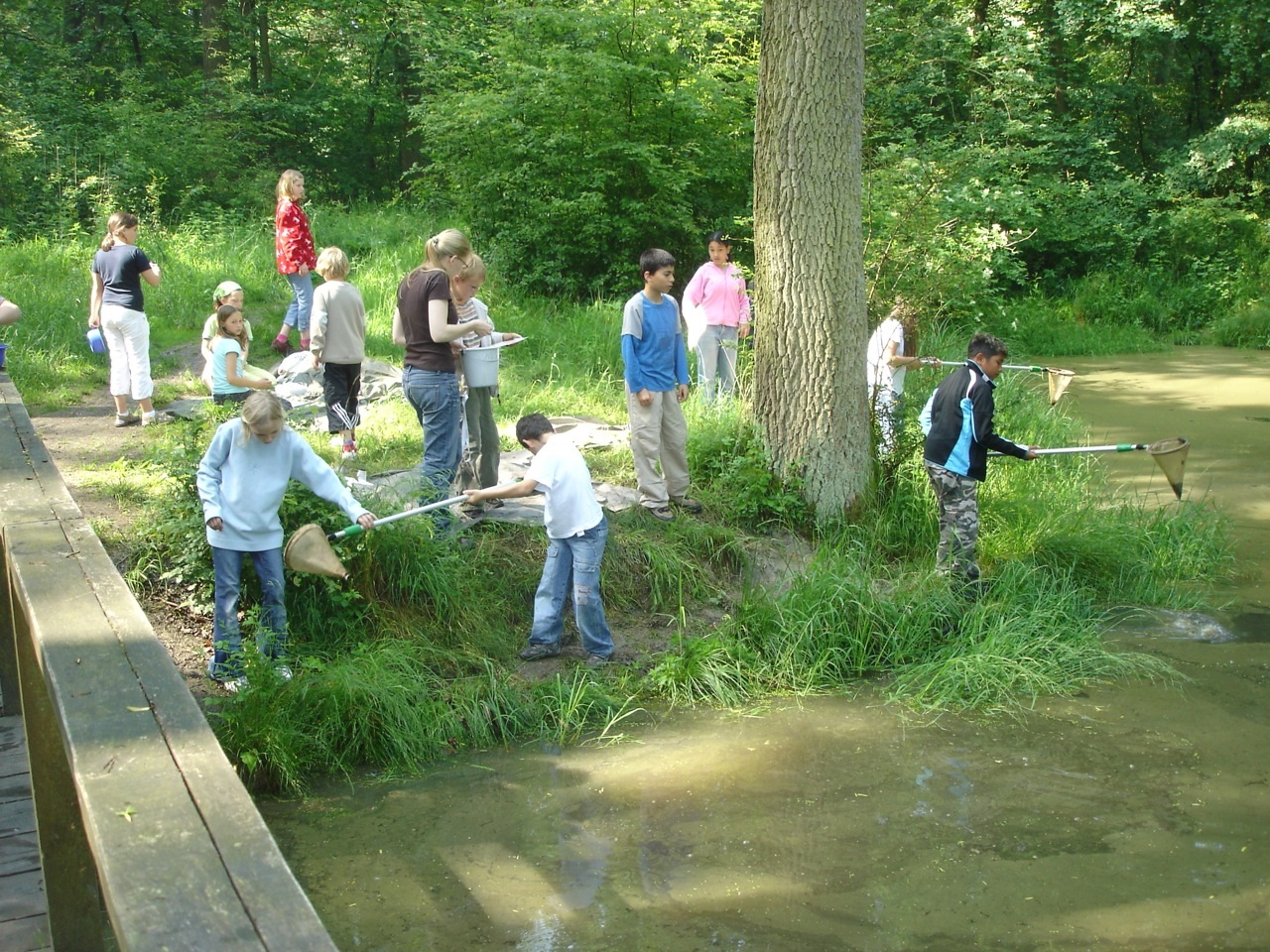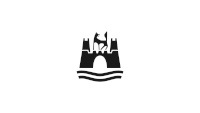NEST Nature Discovery Station
The regional environmental education center
NEST has been in existence since 1988 and is an institution of the city of Wolfsburg and the state of Lower Saxony. NEST is one of 26 Regional Environmental Education Centers (RUZ) in the state of Lower Saxony.
- Vacation offers for children aged 6 and over
- Daycare offers
-
Bookings
The NatureExplorationSTation (NEST) informs
The NEST enjoys great popularity. This results in an extremely long lead time for new bookings. This is no longer affordable for many schools. However, it is in the city's interest that as many schools as possible can take advantage of offerings at our facility.
Number of registrations per school- Maximum of two grades per elementary school
- maximum of three grades per secondary school
Registration periods:
- from May for the 1st half-year
- from December for the 2nd half-year
Late bookings:
- If not all dates have been allocated at the start of the respective half-year, further bookings are possible for all schools.
Binding nature:
- Bookings are considered binding; cancellations should be made early so that dates can be assigned elsewhere.
About the visit to the NEST:
The responsibility for supervision of the students lies with the responsible teacher. All participants should wear clothing suitable for the forest or weatherproof clothing, since the program takes place regardless of the weather.
The NEST is a waste-free place; food may be brought along, but waste must be taken back and disposed of properly elsewhere.
-
Program for elementary school
-
Appointments
Andrea Braunbach
Phone: 05361 848806
E-mail to NEST
In the following, we have compiled information for you on our wide range of offers for elementary schools:
Wolves on the trail - Wanda Schlitzohr
KiTas, Class 1
In the wolf adventure, Wanda tells a participatory story about her life as a young wolf. The children can use appropriate materials to find out more about the life of wolves.Wolves on the trail - Little wolf experts
Class 3 - 4
The biology of the wolf is the focus of the morning. Sensory performance and social behavior are learned through play, practical examples from wolf research and the coexistence of humans and animals are addressed, so that the children become "little wolf experts" at the end.
Grow potatoes yourself
Class 2 - 4
Potato program - plant, care, harvest
From caterpillar to butterfly
From class 2
End of April / beginning of May, cooperation with BUND- Observation of living caterpillars and pupae
- Stories and games about butterflies
- Flight date for butterflies
Energy
Class 4 - 10
Raise awareness of the need to save energy and identify conservation measures.What lives in the pond?
Class 4 - 6
Animals in the pond (especially insect larvae, fleas, worms, possibly newts)Getting to know trees
Class 2 - 4
Getting to know different trees.
The little crawl and dead wood full of life
Class 3 - 4
Examination of dead wood for living organisms.Playful forest exploration
Classes 1 - 3
Games in the forest to get to know the special ecosystem.Birdwatching
Classes 1 - 4
In winter, birds can be easily observed at our bird feeder.
And how soft the plumage or how sharp the claws of a bird of prey are, every child can find out by petting the prepared birds from our collection.
Animals in the forest
As detectives in the NEST forest, we go in search of traces of wild boar, squirrel, mouse & Co.
Organic waste and earthworm
Nature has invented a unique circulatory system - earthworms are a part of it. We look for earthworms to observe and also sort our garbage.
We make our garbage diploma!
Avoiding waste, separating waste and recycling waste. These contents are at the center of the program.
Nesting box construction
Nesting boxes in the schoolyard or in your own garden improve the conditions for cavity nesting birds. We hammer and saw with you.
Material costs: approx. 3 euros
From wood to paper
Paper is made from wood - but our forest also has other tasks. By using waste paper, we conserve the forests. We create paper ourselves from waste paper and measure our annual wood consumption for paper in the forest.
-
Appointments
-
Program for secondary levels I and II
-
Appointments
Andrea Braunbach
Phone: 05361 848806
E-mail to NEST
In the following, we have compiled information for you on our diverse offerings for secondary levels I and II:
Understanding the design principle of "Cradle to Cradle" with the LernBox
Secondary level II: from grade 10
Subjects: chemistry, geography, politics, religion/values and norms
Learning sustainability in concrete terms: Understanding the Cradle to Cradle principle as an example of consistent resource recycling and seeing it as an incentive for sustainable consumption and production (SDG 12).Chocolate - delicate or bitter?
Secondary level I: from grade 7
From the cacao plant to chocolate - making chocolate cream - fair chocolate.
Wolfsburg - urban exploration in one of the youngest city foundations in Germany
Secondary levels I and II: grades 8 - 13, projects.
On the trail of history and stories, architecture, urban planning and sustainable urban development - a bike tour, foot variants are possible.
Animals in autumn and winter
Secondary school I: Class 5 - 6
Subjects: Biology, physics and some geography- Hibernation strategies, adaptations to the cold season
Forest ecosystem
Secondary school I: Grades 5 - 7
Subject: Biology- Investigations in the forest ecosystem, forest use
Exploring the forest with GPS and bike
Secondary school I: Class 8
Subjects: Biology, Geography, Society
- Forest ecosystem - exploration with GPS
The honey bee
Secondary school I: Grades 5 - 6
Subject: Biology- From the biology of the bee, beekeeping
Stream surveys
Secondary school I: Class 7 - 8
Subjects: Biology, Geography- Investigation and evaluation of flowing waters
What lives in the pond?
Secondary school I: Grades 4 - 6
Subjects: Biology, Geography
Animals in the pond (especially insect larvae, fleas, worms, possibly newts)Drinking water - the basis of life
Secondary level I: Grades 5 - 6
Subjects: Geography, Society
Water consumption and virtual water - What is groundwater? We are building a waterworks - water on its way to the sea.Orientation with GPS
Secondary level I: Grades 5 - 7
Subjects: Biology, Geography, Society
Orientation: Using maps and GPSFrom wood to paper
Secondary level I: Grades 5 - 7
Subjects: Biology, Geography, Society- From wood to paper
- Determination and documentation of the annual wood requirements of the school class
- Paper production from waste material
Transport: environmental impact and future concepts
Secondary I: Grades 5 - 7
Subject: Curriculum Mobility
We investigate environmental problems of traffic with experiments, traffic counting and simulation. We find out about future concepts (for example, electric mobility, car sharing, modular transport) and put this into practice creatively.Energy and climate change
Secondary level I: Grades 7 - 9
Subject: Physics- Experiments on electricity guzzlers
- Proper heating and ventilation
- Renewable energies
From the individual to the team
For classroom teachers: Grades 5 - 12, Adults
Games and tasks that promote awareness, trust and cooperation among participants.
Orienteering in the city forest with map and compass
Secondary schools I and II: grades 5 - 12
Subjects: Sports, Geography
- Orienteering with map and compass
Ecosystem hedge
Secondary school I: Class 5 - 6
Just a few bushes? We explore the diversity of plants and animals of the hedge in the Green Classroom at Kerksiek.Wolf, bear lynx in focus - "EDU Wildlife".
Secondary school I: Grade 5 - 9
Subject: Biology
Wolf, bear and lynx return - biology and life of the large predators, coexistence with these animals in Germany and other European countries.Business game wolves as neighbors
Secondary school I: Class 7 - 10
Subjects: Biology, Geography
Building knowledge about the wolf and its return to Lower Saxony. Discussion in the role of various stakeholders in the form of a simulation game with the aim of finding compromises.Junior Wolf Advisor
Secondary school I: Class 5 - 6
Biology and life of the wolf, return of the wolf to Lower Saxony - task of wolf advisors.Forest ecosystem
Secondary level II, suitable for the central school-leaving examination
Investigations in the forest ecosystem, forest use
Ecosystem flowing waters
Secondary level II, suitable for the Zentralabitur
Investigation and evaluation of flowing waters
Lake ecosystem
Secondary school level II, suitable for the central school leaving examination
Subject: Biology
Investigation and evaluation of still waters.
From the field to the tank - production of biofuel
Secondary level II: Class 11
Subjects: Chemistry, Politics, Geography
Production of ethanol from grain - embedded in the current discussion on the question "Tank or plate?".
Ecological urban planning
Secondary level II: Class 10 - 11
Subject: Geography
- Personal desires
- Social reality and ecological necessity in construction
- Land consumption and urban sprawl
-
Appointments
-
Further training
On this page we present our current training courses for teachers and others.
Further offers can be created in consultation.
-
Voluntary Ecological Year
 Children landing net at the pond
Children landing net at the pondFÖJ - Your chance
- An offer for young people who want to work in the ecological field and meet new people.
- For young adults aged 16 to 26 who have left school or training.
- For people who do not yet know exactly what they want to do after school....
Information about the FÖJ and the online application process
-
Directions to the NEST
The NEST and the neighboring Eichendorff Elementary School are served directly by buses of the Wolfsburger Verkehrsbetriebe (WVG) from many parts of Wolfsburg at 8 a.m. and 1 p.m. (special stop: Im Holze, about three minutes' walk). The regular stop is called Barnstorfer Weg (about an eight-minute walk). The traffic chaos caused by private cars in front of this school is especially great in the morning and at noon!
Hints:
Breakfast break? Please remember that there is no kiosk at the Nature Discovery Station. Therefore, students* should bring drinks and food. Breakfast should be low-waste.
Almost all programs take place outside in whole or in part. Be sure to dress appropriately for the weather, even in winter.Address
Nature discovery station NEST
In the wood 40
38440 Wolfsburg
Phone: 05361 848806 -
ESD teaching materials and ideas for home for primary school children
Due to the Corona pandemic, the NaturErkundungsSTation (NEST) Wolfsburg provides elementary school with teaching materials (BNE):
- NEST tips
Contact
-
Contact
Wolfsburg Nature Exploration Station NEST
Regional Environmental Education Center
In the wood 40
38444 Wolfsburg
Phone: 05361 848806
E-mail to NEST
